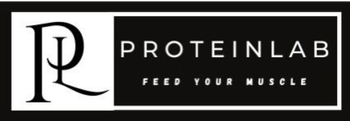
Why Your Workout Isn’t Working

Even though you're going to the gym or following some really good home workouts, the progress you're seeing isn't what you expected. You're working hard for it, sweaty, passionate, and maybe sore, but the results don't match the effort. This is a very common frustration. Sometimes it's not pushing harder but to understand why your workout isn't clicking. This guide goes through some of the biggest reasons why your fitness routine may be falling short, from goal setting and structure to nutrition, recovery, mindsets, and beyond. Each topic includes both insight and solutions so that you can begin adjusting your practices and making that steady progress for once.
Why are your goals and expectations inconsistent?
Many people are thinking of unrealistic programs and timelines. Usually, changes body composition or strength take time, usually months, not weeks. Losing 10 kg in a month spells disappointment. "I want to get fitter" or "build muscle" is so vague. Ignoring Progress Tracking, without tracking, you cannot tell whether you are getting better. Track workouts, weights, reps, measurements, or photos. In this way, you stay motivated and can modify actions accordingly.
Program Design & Training Principles
Poor Routine Structure
Whereas a well-structured program balances frequency, intensity, volume, and recovery time in training, the most usual pitfalls are something such as:
Ignoring the basics
For the client, this means cardio or isolation work instead of strength/full-body work.
Training frequency
It is practically impossible to build consistency working out once a week or a day.
Improper sequencing
Randomly being thrown in without any overload or progression has been planned; just do what we think is right and like.
Lack of Progressive Overload
In order to keep adaptations coming, you must keeply increase the demands that are placed on the body, such as more reps, heavier weight, more sets, or high intensity and long rest time. Doing what feels comfortable equals doing what feels like a plateau for you.
Too Much Repetition
Repetition equals boredom for some and a plateau for others. Mix things up by changing reps, switching exercises every week, or alternating different phases such as strength, hypertrophy, or endurance.
Ignoring Movement Quality
Good form matters more than sheer force. Poor technique can hinder training efficiency and increase injury risk. Form should never be self-assessed, ideally by a third-party recording through a camera or expert coach, and friends. Alignment ensures that muscles are loaded appropriately.

Nutrition Is Also A Point
Under-Eating
Insufficient energy slows recovery, increases stress hormones, and impedes gaining strength or muscle. If at any time hunger strikes, lethargy overcomes, and performance takes a hit, one is most probably under-eating.
Over-Eating
Excess calorie intake prevents fat loss, particularly when just eating a lot of processed foods and high-calorie foods. Practice portion control for a couple of weeks and log your intake before making adjustments.

Macros are Important
Calories are only one part of the story, whereas the remaining part is about nutrient and micronutrient balance.
Protein:
Repair and muscle growth a key components of protein, so go for 1.6–2.2 g/kg calculated by your own personal body weight and height
Carbohydrates:
They are basically fuel for workouts, and they serve the muscle recovery purpose as well.
Fats:
Good for hormones and satiety are determined by them, so feel tempted to neglect the healthy

Recovery and Lifestyle Adjustment
Sleep Quality
Muscle growth and repair take within sleeping hours. These should be duly noted as 7–9 hours every night. A bad quality of sleep elevates cortisol levels, which in turn drains energy, reduces appetite, and lessens motivation.
Rest & Deload
Resistance training without stopping, every day, every week, makes one prone to injury and fatigue. So one must have precise days for rest and lighter "deload" weeks every four to six weeks so the body has time to rebuild stronger and recovery.
Stress Management
Daily life feels stressful through work, family situations, and traffic. Recovery from trauma and fat storage is built on. If stress-busters: Deep breathing, meditation, handiwork, walking.
How To Fix It
Track Everythings
Keep a workout log record it what workout you have done, reps, weight, and sets. Track your food intake for at least one week to easily make adjustments on your micronutrient and calorie targets.

Planning and Following the Structured Program
Choose a program that includes strength-focused, progressive overload, and high intensity. Create a dividing training period into strength and hypertrophy or mobility work, respectively, for a term of 4–6 weeks each ,doing it with correct movement without force or ego lifting .Trust your progress not just work hard and need to work smart.

Readjust Your Nutrition
Set a calorie goal based on your personal height, weight, and BMI, as you can aim surplus for building muscle, or a mild deficit for fat loss. Calculate protein goal based on your personal (1.6–2.2 g/kg) for daily protein intake, and allocate carbs around workouts. Meal prep is the best choice to track your daily micronutrients and calories, easier to remember and stay consistent. Excess calories, you may have some whey protein, good for muscle building, whey isolate, good for diet, and Suppzlab creatine, good for recovery and increasing muscle and strength. Pre-workout is good for your energy and training performance based on your needs.

Be safe and rest assured, you are getting 100% authentic products at the lowest price when you purchase at Proteinlab Malaysia.
You can also like our Facebook page for more promotional news at:
Or you can also follow our Instagram for more nutrition tips at:
